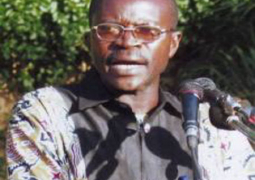Pa Ousman Jarju said access to market for agricultural produce enables production to be demand-driven; therefore improving rural infrastructure is a key area that needs urgent attention.
He made this remark on Wednesday at the launching of United Nations Conference on Trade and Development (UNCTAD) Least Developed Countries (LDC) report 2015 held at UN House in Bakau.
The theme of the report is ‘Transforming Rural Economies’.
Speaking on behalf of the agriculture minister, Minister Jarju said the theme is in line with the central objectives of Agenda 2030 of the African Union and the objectives of most development partners.
“Transforming rural economies is the total uplifting of the socio-economic conditions under which rural dwellers live and derive their livelihoods,” he said.
He added that the recent trend and outlook for LDCs indicates that economic growth has slowed since 2012 with the exception of fuel exporting countries.
“The decline in economic growth continues due to less favourable external conditions and the outbreak of Ebola in the sub-region,” Hon Jarju said.
The report also highlights challenges of transforming rural economies in LDCs such as shortfall in human resources development and such deficit is said to be much greater in the rural areas in comparison to urban areas.
Also, decrease in labour productivity and in total factors of productivity, low use of inputs in agricultural production, slow or non-existent mechanisation, low use of machinery in production, and low level of technology transfer continue to hinder the growth of the LDCs, according to the report.
The report recommended a six-point policy agenda that should be the focus of intervention in a bid to transform rural economies to alleviate poverty and create wealth.
According to Minister Jarju, The Gambia government has embarked on a transformative agenda meant to transform the rural economy, alleviate poverty and create wealth among the farming communities.
“A number of initiatives have been implemented; some others are underway while others are being explored within the context of Vision 2016, Vision 2020, Vision 2025 and the overall development of the economy,” he said.
“Agricultural extension remains the main mechanism for support to farmers in this transformative drive and this is further enhanced by the introduction of new products for support of farmers.”
The minister said the government through the Ministry of Agriculture is fully aware of the need to increase the productivity of farmers so they can produce more from a given unit area.
He explained that one mechanism that has been put in place to ensure that this takes place is the innovation platform.The platform brings together all the stakeholders into close contact and interaction for collective development of production, processing and marketing practices for the derivation of greater socio-economic benefits.
“This has served as a vehicle for transfer of technology and for improving the availability of inputs to needy producers,” Jarju said.
He pointed out that the Ministry of Agriculture has worked closely with the Ministry of Infrastructure in collaboration with a number of development partners to develop projects to support the drive to transform rural economies.
Read Other Articles In Article (Archive)
Gambian Architect To Train More Youths
Jun 11, 2009, 7:22 AM
Training for Masons, Engineers Underway
Jan 23, 2013, 11:02 AM


